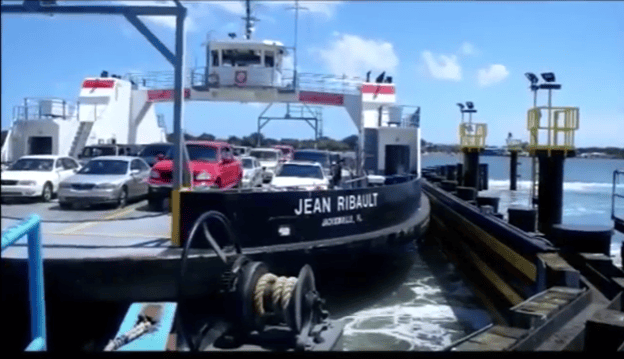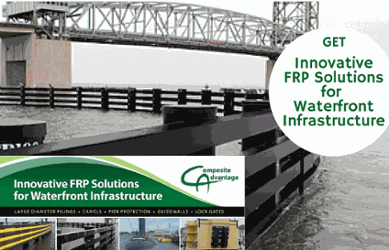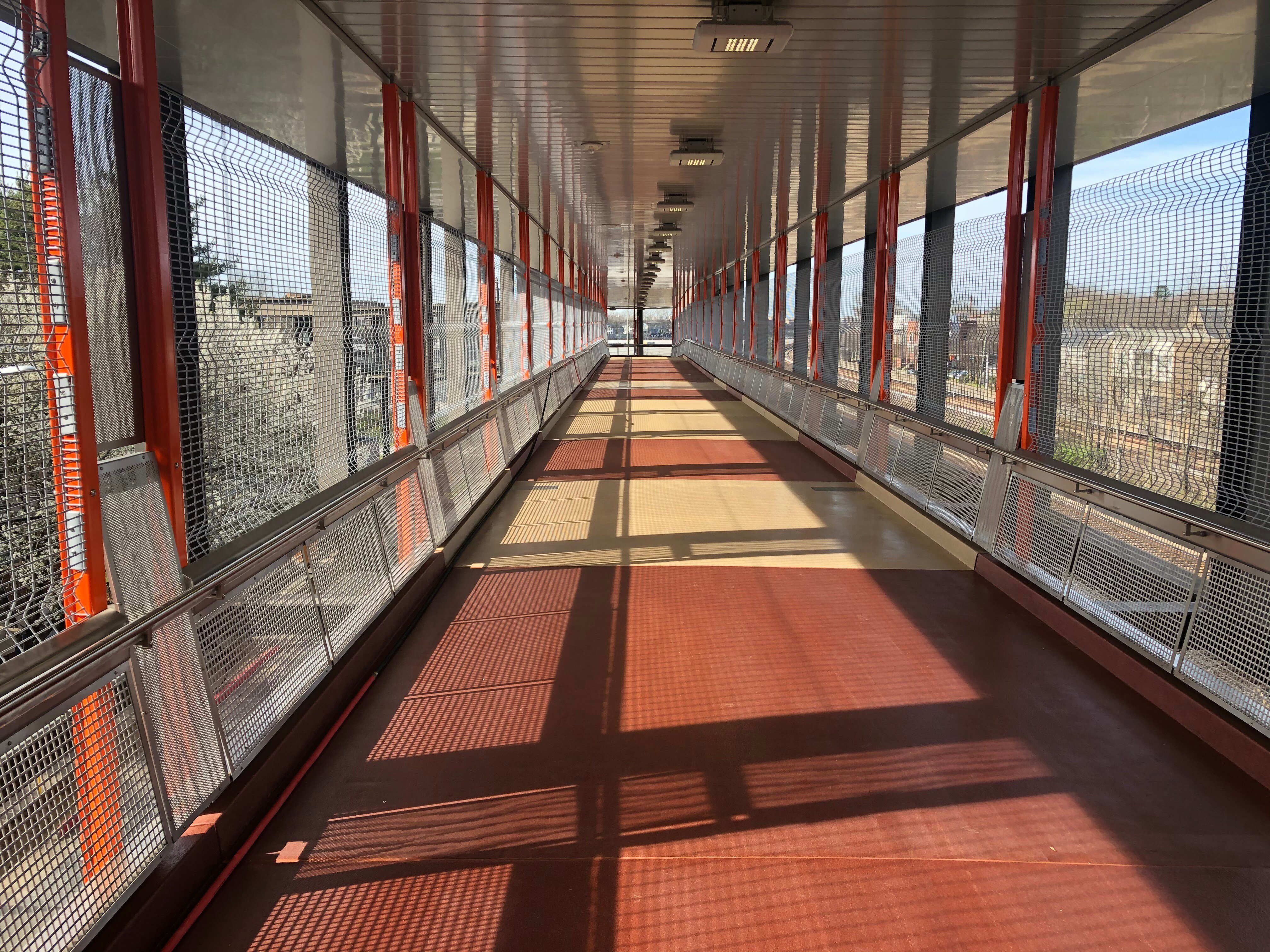
As a lightweight contender, Fiber Reinforced Polymer (FRP) composites continue to put conventional materials on the ropes when it comes to strength and durability. Yet, this advanced material sometimes gets a bad rap when it comes to toughness. It may be because people tend to think “plastics” when they hear the word polymer. Or maybe it’s because the lightweight material doesn’t feel the same as steel. I’d like to set the record straight once and for all: FRP is as tough and resilient as any material.
A great example of this is the use of FRP in waterfront protection systems – the sole purpose of which is to withstand the impact of ships and barges. There's a lot of mass in those large ships that cruise the waterways, and that moving mass carries a lot of momentum and energy. FRP is the right solution for handling these impacts, and for several reasons.
Let’s look at FRP pilings used at ferry terminals for slip walls. These FRP structures withstand the impact of numerous ferries, passengers and cars and all, every day. FRP composites stand up against these large impact loads just as well as steel, but there's more. FRP pilings are able to outperform steel because of the material’s ability to deflect under load. By distributing load with other pilings in the structure, an individual FRP piling takes less impact (and damage) than a steel piling.
Despite this toughness characteristic, FRP is actually gentler than steel where it counts. When the ferry ships hit the FRP guide walls, the overall system moves to take the impact; meaning, there's less of a jolt to ferry passengers. Take a look at the above video. The ferry approaches the terminal in Jacksonville, Florida. Currents and winds challenge ferry captains every day, and this day is no different. Couple that with the high numbers of daily impacts at every ferry terminal, and you have a challenge. Thankfully, the FRP system is tough enough to absorb this impact (over and over) while gently guiding the ferries into the terminal. This makes daily life easier for both captains and passengers.

